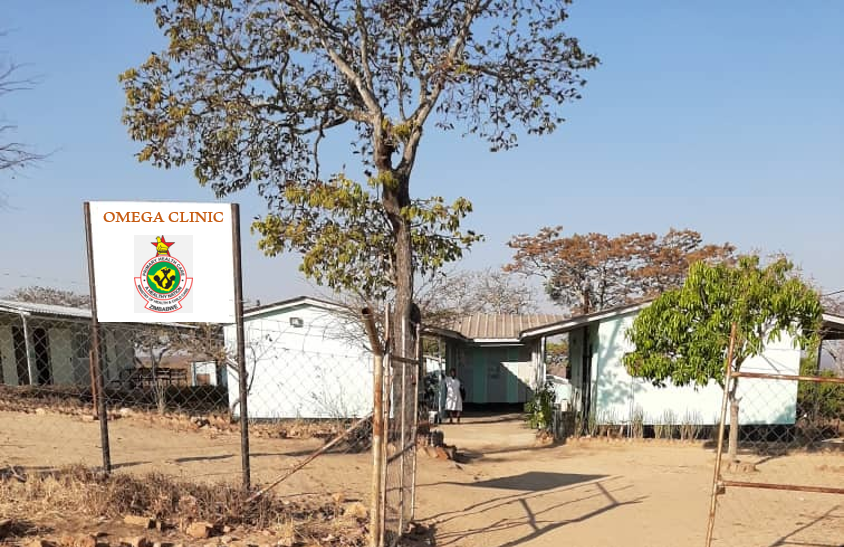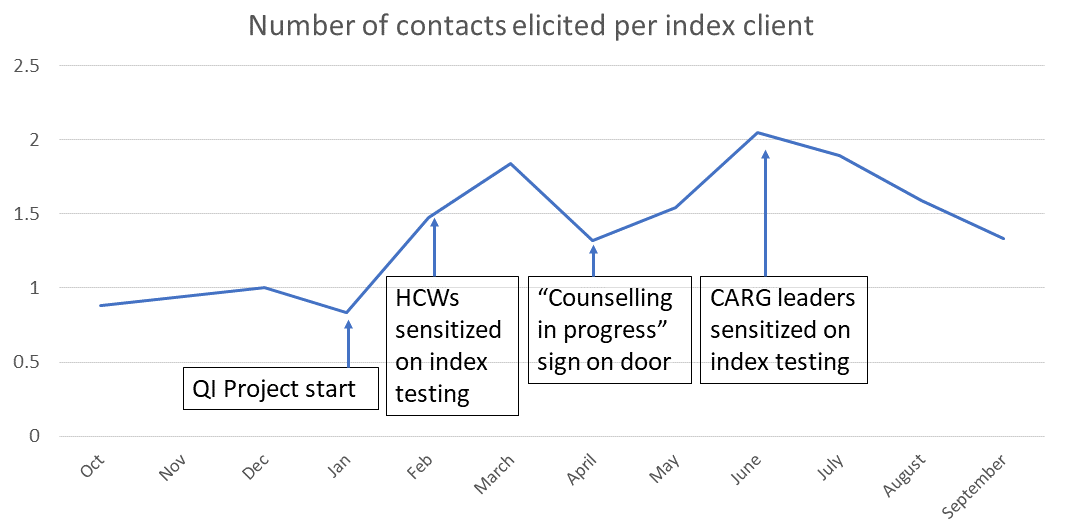Session 6: How to Coach on Sustaining Gains
In this final session we will discuss how to help teams sustain improvements made when the formal QI project comes to an end. We will also explore next steps for further developing your coaching skills.
Getting Ready For This Session
- Remember to have your workbook and a pen or pencil handy
- You will need about 55–65 minutes to complete the session
Learning Objectives
By the end of this session, learners will be able to:
- Describe the causes for declines following improvements made during a QI project
- Coach a team in planning for sustaining improvements
- Describe the next steps you will take to further develop your coaching skills and use available resources
Learning Activities
-
Introduction (2 min)
Congratulations! This is the last session of this training series on coaching QI teams. We have covered a lot of material, and you have had the opportunity to practice your skills and reflect on your experiences.
In this final session we will discuss the ongoing practice of supporting QI teams, and talk about ways to help teams make plans to sustain the gains they have made through their improvement projects.
We will also discuss how you may plan the next steps for your own ongoing skill development as a coach.
-
Pre-test Self-assessment (10 min)
Let’s begin this session with a brief pre-check of your knowledge and comfort with sustaining the gains of a QI project. Each question will have a score for you to track in your workbook. Please track your scores as you go through this assessment, and make note of any content areas that you answered incorrectly.
For the following two questions, select True or False.
-
Ongoing Coaching (3 min)
After your team has been meeting for a while, has conducted a number of QI activities, and has developed its own cohesiveness as a team, you will be moving into an ongoing supportive coaching role. You will want to keep in touch with the team, providing guidance on QI project steps along the way, and conducting site visits as needed.
Transcript

It is important for us as QI coaches to provide ongoing support. However, the nature of that support will vary, depending on the level of the team being supported. For some teams, there will be a need for more active coaching for a longer period, while others may be operating more independently and need just an occasional check-in and motivation. Either way, when you want to check in with a team, you will want to make the necessary arrangements and confirm the availability of the team, and [then] set up a time that is convenient for them. At least every few weeks, you should find a way to check in with the focal person—ideally, you must have a check in schedule that is shared with the team so that they are not caught unaware. The check-in does not have to appear like some witch-hunting exercise if you are to get the team’s cooperation.
Another key to ongoing support is to check the facility data on a regular basis, and ask questions about decreases, increases, or any outlier. You want to encourage the team to do data analysis after abstraction. They should be able to answer questions on the data before they are asked. Also encourage them to make use of their data locally, before submitting [them] to the next level.
If the team seems to be faltering, besides finding out what would be the reason, it may be time to re-visit some of the basic materials on team roles and functionality—maybe roles need to be changed or switched, [or] maybe people need resources to better understand [their roles]. Make use of charts in the QI corner as reminders to display roles and responsibilities. Also make sure that individual team members understand the demands of their roles.
Being a QI coach requires good interpersonal communication; we want to keep a supportive, rather than authoritative, tone and use simple language which all team members can understand. We should be open and approachable for the team to discuss any challenges. and remember to take a step down, so that [you and] they are at the same level—never look down upon a member of the team. When you give feedback, it should be done in an objective and constructive way, highlighting both the positive and what needs to be improved.
Alleta -
When You Have Reached Your Aim (3 min)
When a QI project reaches its goals, and the aims of the project have been met, the team’s task is not over—the team needs to focus its attention on sustaining these gains. Sometimes a QI project will experience a decline after seeing improvements and achieving its goals.
-
Research on Sustaining Improvements (5 min)
If your team’s QI project has experienced a decline following good progress towards its aims, don’t feel discouraged. This is a fairly common occurrence; it does not mean that your project has not been valuable.
Several research studies have been published on the topic of sustaining improvement; these studies have identified things that coaches can do to facilitate this. For example, IHI studied 10 high-performance US health care systems to draft a framework for sustaining gains1. Some of the key points made in this paper were:
…too often, hard-won improvements are lost as attention shifts to other priorities and staff revert to the “old way” of doing things.
The key to sustaining improvements is to focus on the daily work of frontline managers, supported by a high-performance management system that prescribes standard tasks and responsibilities for managers at all levels of the organisation.
In addition, the study on pulmonary care improvement described in Scoville et al. highlighted the value of improvement work, despite any declines that may be seen. Here are some quotes from that study2:
Disappointing long-term results can mistakenly contribute to a general belief that quality improvement doesn't work or isn't worth the effort. Alternately, improvement efforts are at times interpreted as short-term strategies meant to course correct before the organization moves on to a new problem…
…when an improvement has successfully demonstrated its ability to change clinical outcomes, the entire set of clinical practices must be transitioned from exceptional procedure…
For us to realize the benefits of the many hundreds of successful improvement efforts under way in a health system every day, it is time for us to focus on strengthening routine local management structures to convert the best of these improvements into the everyday work of the everyday heroes on the front lines…
-
Summary: Keys to Sustaining Gains (5 min)
In summary, research suggests that keys to sustaining the gains seen in improvement projects include (tap to read more):
-
Integrating improved processes into daily routine activities
This is sometimes called ‘quality control’, in which the quality improvements become part of the new system and are consistently practiced. When changed processes are shown to result in improvement and progress towards aims, the QI team, managers, and other frontline staff should discuss how to incorporate these processes into routine practices at the facility.
-
Oversight and support for new processes by frontline management
As the new processes become integrated into routine practice, manager and supervisor site support should include reviews of whether the improved processes are being sustained. They should provide encouragement and resolve challenges that arise in implementing the new practices.
-
Higher-level management support for QI efforts
In addition to facility management oversight and supervision around improved processes, having the support of higher-level management is valuable. Be sure that teams regularly inform management about their progress on the project.
-
Continuous attention to quality, combined with a culture that focuses on problem analysis, not personal blame
Emphasising attention to quality, using data to understand programmes, and focusing on continuous learning and improvement are all valuable practices that should be sustained throughout the life of a programme–these will provide a foundation for sustaining gains achieved through targeted QI activities.
-
Coaching to build staff capacity and expertise
As facility teams grow in their capacity to conduct QI activities, their ability to sustain improvements will also increase. Your ongoing coaching, via in-person visits and virtual communications, will help the teams build these skills over time.

-
Integrating improved processes into daily routine activities
-
Declining Numbers at Omega Clinic (15 min)

Sekai has been meeting with the team at Omega less frequently than she did during her initial weeks. Now she checks in by phone or WhatsApp and only visits once a month. However, after a few months of this, she is noticing some concerning data…
Take a look at the run chart for the number of index contacts being recorded each month.

Sekai meets with the team to discuss the declining numbers and possible causes. She reassures the team that this is not uncommon and shares some quotes from an article that was published on the subject of sustaining improvement.
In discussion, the team came up with a number of possible causes of the decline. These included:
- Competing programme priorities, resulting in less focus on index testing
- Attrition of trained staff
- Lack of supervision and mentorship for index testing
Sekai summarises an overarching theme from the discussion, which was that the new systems designed to promote improvements were not integrated into regular practices at clinic, so that the index testing focus was de-prioritised and new staff were not trained properly on index testing.
Sekai and the QI team had a successful meeting and were able to come up with plans for getting back on track. Now she needs to document her visit with the team, as she has been doing throughout the project, in her coaches’ monthly reporting tool.
-
Why QI? (2 min)
Let’s listen to Edson as he reminds us of why we do this structured process.
Transcript

One question that may arise in the minds of QI team members, other facility staff, and even yourself as a coach is, ‘Why should we take the time and effort, in a very busy workday, to go through these formal QI processes when we could just change things?’ This is a reasonable question, and worth considering thoughtfully. Some of the main advantages of doing formal QI activities are that they help the programme achieve success—by building support and minimising resistance to new ideas. Formal QI may take time and resources in the short term, but in the long run they often improve efficiency and end up saving time. And through the process of formal team—based QI, ideas that may not have initially come to mind or seemed feasible will emerge that can result in important progress towards set aims.
Edson -
Post-test (10 min)
Now that you have completed this session, let’s finish with a quick check of your knowledge and comfort around how to coach on sustaining gains. Each question will have a score for you to track in your workbook. How did your post-test score compare to your pre-test score? If you found that you had some gaps in your knowledge or understanding, think about what you can do to fill in those gaps for yourself, and what resources you can access.
-
Summary and Next steps (5 min)
Congratulations on completing this session on sustaining gains and on planning for your next steps as a coach. And congratulations on completing the QI for Coaches course!
Now would be a good time to review your action planning tool. Look over all the sections and plans you have made, and see if any additional ideas need to be added. Finally, think about how you can plan for integrating new processes and systems into the regular practices of the facility.
Take a few minutes to fill in the last section on the action plan. List a few activities that you will conduct as you work with the QI team to provide ongoing support and help sustain the gains of the QI project.
Remember, you are not alone on your QI coaching journey. Take advantage of the resources provided here in this course, and reach out to your QI faculty or the QI Coordinator, as well as to your QI coach peers.
Just like the projects we work on, QI coaching involves ongoing learning and improvement. You are well on your way!

-
Closing Remarks (2 min)
Transcript

After going through the quality improvement Coaches' training , as a coach you might think that this is a lot of work, or you might not have grasped all the concepts. I just want to encourage you to be patient and to remember that learning about quality improvement is a process. All you need to do is to be consistent in the learning. Feel free to consult me, or any of the support team, or any of the other experienced coaches, if you need help.
It is very important to use the QI tools, the workbook that we provided to you, and resources that have been availed to you. These will enable you to understand the quality improvement concepts and assist in the mentorship of quality improvement teams during projects.
My hope is that the coaches' training will be a foundation of quality improvement as a coach and will build your capacity in mentoring QI teams.
Remember, there are experienced QI coaches who are always at your disposal if you need any help. You are not alone and I have faith in you that you are going to be great coaches.
Roe -
Resources
Here are some of the resources you can access on this topic. Remember, if you need additional support or information, contact your supervisor or QI coordinator.
Title/Source File Scoville R, Little K, Rakover J, Luther K, Mate K. Sustaining improvement. IHI White Paper. Cambridge, Massachusetts: Institute for Healthcare Improvement; 2016. Click to open file. Mate, K. Sustaining Improvement in an Era of Prevailing Distraction: Lessons from I-COUGH. The Joint Commission Journal on Quality and Patient Safety 2020; 46:239-240. Click to open file. Zim-TTECH Quality Improvement Coaches’ Monthly Reporting Tool Click to open file. Action Plan Template Click to open file.
Footnote references
- Scoville R, Little K, Rakover J, Luther K, Mate K. Sustaining improvement. IHI White Paper. Cambridge, Massachusetts: Institute for Healthcare Improvement; 2016. (Available at ihi.org)
- Mate, K. Sustaining Improvement in an Era of Prevailing Distraction: Lessons from I-COUGH. The Joint Commission Journal on Quality and Patient Safety 2020; 46:239-240.
